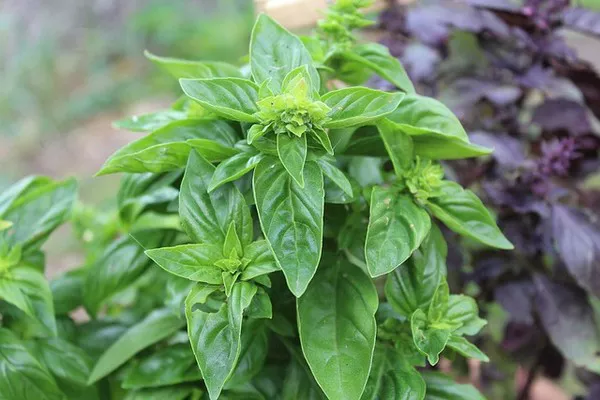Ants can be a persistent nuisance in homes and gardens alike, often seeking out food and shelter wherever they can find it. While there are numerous methods for controlling ant populations, one lesser-known approach involves using plants that ants naturally dislike. By strategically incorporating these plants into your landscaping or indoor garden, you may be able to deter ants and keep them at bay. In this article, we’ll explore some of the plants that ants hate and the mechanisms behind their repellent properties.
Understanding Ant Behavior
Before delving into specific plant choices, it’s important to understand why certain plants repel ants. Ants rely heavily on chemical signals to communicate with one another, using pheromones to navigate, forage for food, and mark territory. Some plants produce compounds that interfere with these pheromones or emit odors that ants find unpleasant, effectively deterring them from establishing colonies or foraging in their vicinity.
Plants That Repel Ants
1. Lavender (Lavandula): Known for its calming fragrance and vibrant purple blooms, lavender is also a natural ant repellent. The strong scent of lavender essential oil contains compounds like linalool and linalyl acetate, which disrupt ants’ pheromone trails and make it difficult for them to navigate.
2. Mint (Mentha): Mint plants, including varieties like peppermint and spearmint, emit a strong aroma that ants find repugnant. The high concentration of menthol in mint leaves acts as a natural deterrent, discouraging ants from venturing near.
3. Basil (Ocimum basilicum): Beyond its culinary uses, basil is valued for its ability to repel ants and other pests. The pungent aroma of basil plants, particularly when crushed or bruised, releases compounds like estragole and linalool that deter ants effectively.
4. Marigold (Tagetes): Marigolds are not only prized for their bright blooms but also for their insect-repelling properties. Compounds like limonene and pyrethrin found in marigold plants disrupt ants’ sensory receptors, making them less likely to linger in the area.
5. Rosemary (Rosmarinus officinalis): Rosemary’s fragrant, needle-like leaves contain essential oils such as camphor and 1,8-cineole, which have been shown to repel ants and other insects. Planting rosemary bushes near entry points or ant trails can help deter unwanted visitors.
6. Chrysanthemum (Chrysanthemum spp.): Chrysanthemums contain pyrethrin, a natural insecticide commonly used in pest control products. While pyrethrin primarily targets insects like mosquitoes and flies, its presence in chrysanthemum plants can also deter ants and other crawling pests.
7. Catnip (Nepeta cataria): Catnip, a member of the mint family, is well-known for its euphoric effects on cats. However, its potent scent, derived from compounds like nepetalactone, also repels ants and other insects, making it a useful addition to gardens or indoor planters.
8. Citrus Trees (Citrus spp.): Citrus trees, including lemon, lime, and orange varieties, produce oils in their leaves and fruit peels that ants find disagreeable. Placing potted citrus trees near entry points or ant trails can help deter ants while adding a decorative touch to your space.
9. Eucalyptus (Eucalyptus spp.): Eucalyptus trees are renowned for their aromatic leaves, which contain eucalyptol and other compounds with insect-repellent properties. Planting eucalyptus trees or using eucalyptus essential oil can help discourage ants and other pests from invading your home or garden.
10. Peppermint Geranium (Pelargonium tomentosum): This unique geranium variety, also known as “mint-scented geranium,” emits a strong peppermint aroma that ants find off-putting. Placing peppermint geraniums in pots or hanging baskets near windows and doors can help create a barrier against ant intrusion.
Incorporating Ant-Repelling Plants Into Your Landscape
Now that you’re familiar with some of the plants that ants hate, you may be wondering how to integrate them into your garden or indoor spaces effectively. Here are a few tips for incorporating ant-repelling plants into your landscape:
1. Strategic Placement: Identify areas where ants are most likely to enter your home or garden, such as doorways, windowsills, and outdoor patios. Place ant-repelling plants in containers or beds near these entry points to create a natural barrier.
2. Companion Planting: Pair ant-repelling plants with other garden favorites to create aesthetically pleasing arrangements that also serve a practical purpose. For example, you could interplant lavender with roses or mix mint with tomatoes in a vegetable garden.
3. Container Gardening: If space is limited or you prefer to keep plants indoors, consider growing ant-repelling plants in containers. Place pots of mint, basil, or rosemary on windowsills or countertops to deter ants while adding greenery to your home.
4. Herb Gardens: Cultivate a dedicated herb garden featuring ant-repelling herbs like basil, mint, and rosemary. Not only will you have fresh herbs on hand for cooking, but you’ll also help naturally deter ants and other pests from your outdoor living spaces.
5. Natural Pest Control: In addition to repelling ants, many of these plants also have beneficial properties for other garden pests. Embrace a holistic approach to pest management by incorporating ant-repelling plants alongside other pest-deterring species like garlic, onions, and marigolds.
Conclusion
While ants may seem like formidable foes, they can be deterred using natural methods that leverage the repellent properties of certain plants. By incorporating ant-repelling plants like lavender, mint, basil, and rosemary into your landscape or indoor garden, you can create an inhospitable environment for ants while enhancing the beauty and functionality of your space. Experiment with different plant combinations and placement strategies to find the most effective solution for keeping ants at bay. With patience and persistence, you can enjoy an ant-free environment without resorting to harsh chemicals or pesticides.


